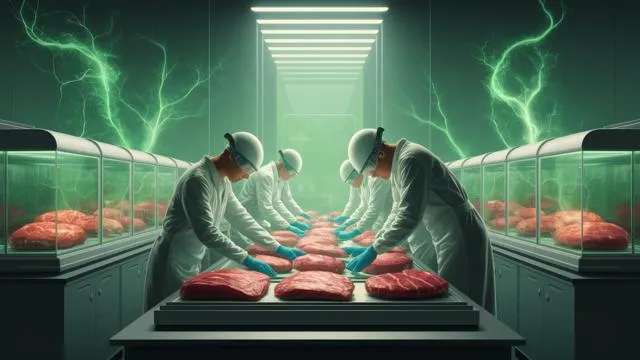In a groundbreaking shift towards sustainable eating, the UK is on the brink of introducing lab-grown meat to its consumers, potentially within the next two years. This innovative approach to food production, which involves cultivating meat from animal cells in a laboratory setting, promises to revolutionize the way we think about and consume meat.
The Food Standards Agency (FSA) has recently announced a pioneering program aimed at rigorously assessing the safety and viability of cell-cultivated products (CCPs), with the goal of bringing them to UK shelves by 2025. This move positions the UK as a frontrunner in the global race towards sustainable and ethical food production, despite the challenges faced by companies in navigating the regulatory landscape.
The initiative involves collaboration with eight leading companies in the field, including UK-based Hoxton Farms, Roslin Technologies, and Uncommon, alongside international players such as BlueNalu from the US and Mosa Meat from the Netherlands. These companies are at the forefront of developing a variety of lab-grown meats, from burgers and steaks to salmon, all produced without the need for traditional livestock farming.
This method not only significantly reduces the environmental footprint associated with meat production, including land use and greenhouse gas emissions, but also offers the potential for enhanced nutritional profiles tailored to consumer health needs.
However, the advent of lab-grown meat has sparked a debate among traditional farmers and advocates of natural foodstuffs, who view CCPs as a threat to conventional farming practices and a step further into the realm of ultra-processed foods.
Despite these concerns, the FSA's program underscores a commitment to fostering innovation in the food sector, with a focus on safety, consumer choice, and environmental sustainability.
As the UK navigates the complexities of introducing lab-grown meat to the market, the global community watches closely, recognizing the potential of CCPs to address pressing issues of food security, climate change, and ethical consumption.
The journey of lab-grown meat from the lab to the dinner plate is not just a testament to human ingenuity but also a pivotal moment in the evolution of food production, offering a glimpse into a future where sustainable and ethical eating is within everyone's reach.










